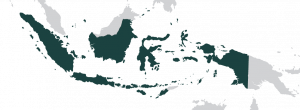
In recent years, attitudes towards Indonesia’s LGBTQ population have become increasingly hostile as support for conservative Islamist forces has grown. In 2008, the country passed a national Anti-Pornography Law that classifies same-sex relations as “deviant behavior” and since 2016 police have begun enforcing this law widely by arresting LGBTQ people both in well-known LGBTQ establishments and in their private homes. In 2014 laws were also passed in the province of Aceh—the only Indonesian province to practice Sharia—that explicitly outlaw same-sex and extra-marital relations. Under these combined laws, more than 300 Indonesians were arrested or harassed in 2017 for alleged LGBTQ-associated behavior, including a raid on a well-known LGBTQ gym and sauna in Jakarta, the forced eviction of twelve women suspected of being lesbians from their village, the caning of two young men in Aceh found having relations in their private home by their neighbors, and the arrest of twelve transgender women at an Acehnese beauty salon who were subsequently shaved and forced to live as men.
As if this harassment has not been bad enough, some lawmakers are now seeking to amend the country’s Criminal Code to include clauses outlawing all same-sex conduct and sex outside of marriage not only in Aceh, but country-wide. While LGBTQ individuals are already being targeted nationally under the Anti-Pornography laws, these changes would give the government even stronger grounds for discrimination and harassment. The NGO Human Rights Watch has tracked and documented this alarming development extensively. While the legislation has been delayed by protests largely from women’s groups, proponents are looking to resume the process and have received public support. Local elections in 2018 and national election in 2019 have also made the political climate ripe for scapegoating, and Indonesian leaders are being increasingly cornered by militant Islamists to reject the very existence of the country’s LGBTQ people.
Legislators from all major political parties are meeting in the coming weeks to discuss the changes to the Criminal Code. If these changes are agreed upon, the Code would then be amended over the coming months and could be passed through the Indonesian Parliament within the year. Therefore time to take a stance on this pressing issue is running out.
To keep companies informed on this and other LGBTQ issues occurring around the world, Out & Equal has formed the Global Rapid Response Network, and invites our partners to participate. Through this network, Out & Equal will share information on relevant issues and engagement opportunities via dedicated global briefs—including one on the current challenges being faced in Indonesia. Each brief will include an overview of the country and issue at hand, why it matters, and what your company can do. Additionally, the network will create a way for members to connect and collaborate with other corporations, in support of LGBTQ inclusion around the world.
If you are seeking to engage your company on the issues currently taking place in Indonesia, or are interested in joining the Global Rapid Response Network, please reach out to global@outandequal.org for more information.